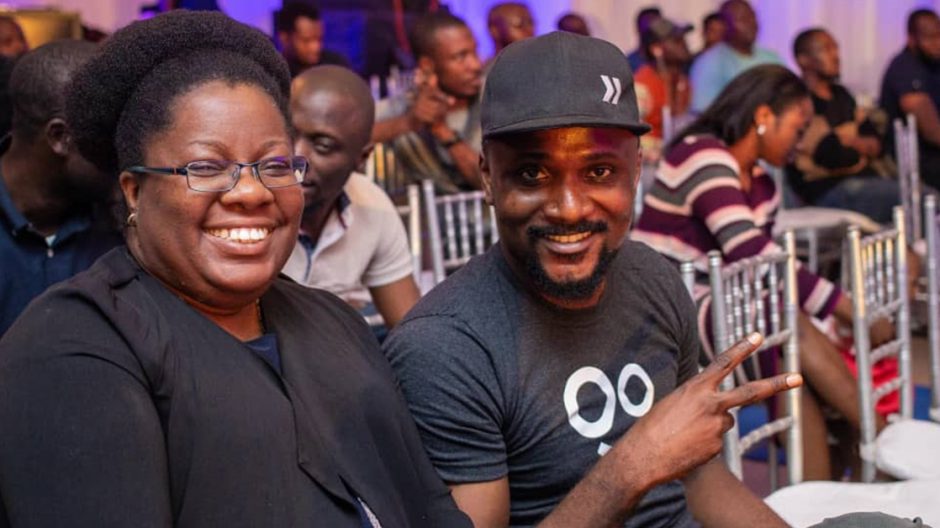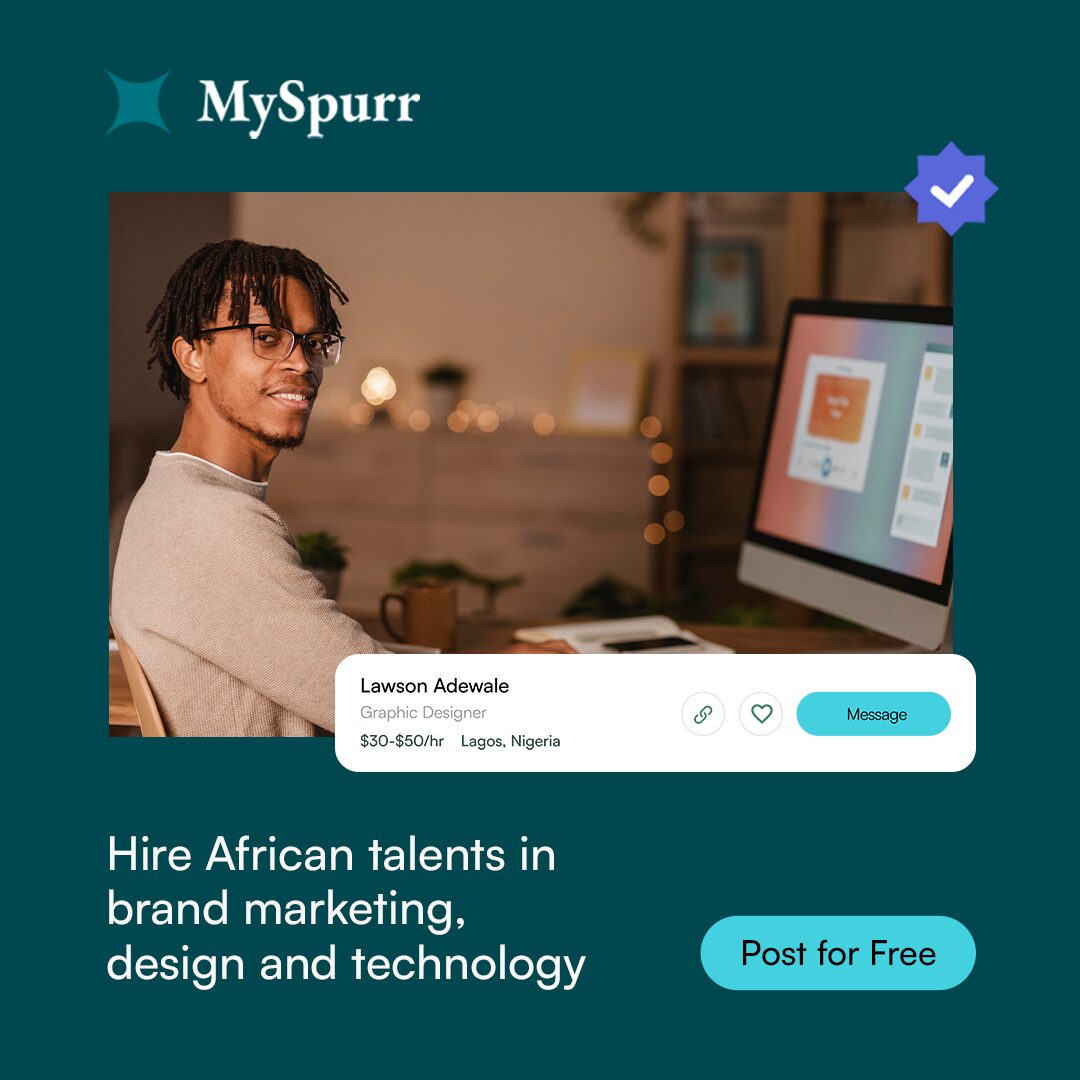OO Nwoye is widely known in the Nigerian tech ecosystem as an ecosystem builder, startup advisor, and connector of people. His journey, which spans launching startups, organizing some of the first tech meetups in Nigeria, and playing a role in the success of companies like Paystack, is a story of resilience, vision, and the power of community.
In this interview, OO Nwoye takes us through his early days in tech, the challenges of building Nigeria’s startup ecosystem, and the moments that shaped his career—from launching startups to advising some of the biggest names in African tech today.
From Lagos to the UK: The Early Days
You’ve been in the tech space for a long time. How did your journey start?
Growing up in Nigeria, I always knew I wanted to be an entrepreneur, and I was interested in tech. But I had no clue how to get started. My mum played a big role in shaping my journey—she wanted me to gain international exposure, so I moved to the UK for university.
Before I even got to the UK, I started a Facebook group called “Warwick Internet Entrepreneurs.” That was my first step into the tech space, even before I had the knowledge or experience to build something meaningful.
At Warwick, I met Joel Gascoigne, who was the only person that joined my Facebook group at the time. We became friends, worked on projects together, and eventually launched a startup called OnePage. It didn’t work out, but Joel later went on to build Buffer, which is now a globally recognized company.
When OnePage failed, I had to decide: stay in the UK or return to Nigeria. Even though I had the option of staying for another 18 months, I made a deliberate decision to return home. My goal was simple—connect Nigeria’s tech scene to the global tech space.
Getting Into Tech & the Reality of Being a Black Founder
How did you get into the tech space while in the UK?
I spent a lot of time in London, attending tech meetups, networking with founders, and learning how startups were built. While my classmates went to Coventry for the weekends, I was in London, eating pizza, drinking beer, and talking tech with startup founders.
But two things stood out to me:
- I was almost always the only Black person in those spaces. It was hard to get other Black people, let alone Nigerians, involved in tech. I once organized a tech conference at Warwick, and none of my Nigerian friends attended.
- I got my first taste of startup success—and controversy.
In 2010, my startup was featured on TechCrunch, which was a huge deal at the time. Nigerians from around the world were shocked—people were sending me messages like “I can’t believe a Nigerian is on TechCrunch!”
At the same time, I wrote a blog post titled “If You Want to Stop Nigeria Scam, Support Techies.” My argument was simple—if we create real opportunities in tech, young Nigerians will focus on that instead of fraud. The article went viral and was later picked up by Business Insider.
Those two moments—TechCrunch and the viral article—made me known in Nigeria’s early tech space, even though I was still living in the UK.
Returning to Nigeria & Building the Ecosystem
What was the Nigerian tech scene like in 2009 when you moved back?
It was isolated. There was no Twitter hashtag, no online community, no easy way to find and connect with other tech people. If you wanted to meet someone, you had to know someone who knew them.
So, I decided to fix that. In 2009, I organized what I believe was Nigeria’s first real tech meetup. I just told people, “Let’s show up, drink, and talk tech.” That’s how it started. At that meetup, I met Shola Akinlade (Paystack Founder) and Akin Oyebode (Stanbic IBTC). I remember telling Akin:
“You banks run payments, but it’s a mess. Let’s help you fix it. I’ll bring the tech people together, and we’ll build it for you.”
That conversation planted the seeds for Nigeria’s fintech revolution.
I kept talking about payments with Shola, and one day, he told me he had access to Mastercard’s Integrated Payment System (MIGS) and could process payments. I told him:
“Guy, this is what we’ve been looking for! If you can charge a card, we can build anything on top of it.”
That moment would later lead to Paystack’s success.
From Founder to Tech Advisor
You started as a founder but later transitioned into an advisor. How did that happen?
Honestly, it wasn’t planned. My startups weren’t doing great, but I was really good at bringing people together and helping them build.
In 2011, I wanted to organize a bigger, more structured tech meetup, so I created TechCircle—a proper organization instead of just informal meetups.
By 2013, I had gained recognition as someone who could bring together the right people. Investors like Eghosa Omoigui (EchoVC) and Hiro Mashita (Paystack’s early investor) asked me to organize events to connect them with startups.
I wasn’t charging money for these events. For me, it was always about building the ecosystem.
After doing a few of these, my friends convinced me to focus on advising founders instead of building startups myself. That’s how the shift happened.
Oya Make We Groove – The Social Side of Tech
How did OMWG start?
In 2017, I was visiting my friend Ubi Franklin, and he showed me his bar in Lekki. I casually suggested we throw a tech party in December. He agreed, and Oya Make We Groove (OMWG) was born.
The goal was simple—let’s create a space where founders and tech people can relax, network, and have fun.
At first, it was a small event where everyone pitched in whatever they had. The PlayStations were from Paystack’s office, the chess board was from my cousin. It was pure community.
By 2018, Facebook reached out to sponsor the event. That’s when I realized we had something special, and it’s been growing ever since.
The Paystack Journey & Exit to Stripe
How did you get involved with Paystack?
I met Shola Akinlade at my first tech meetup in 2009. We became friends and always talked about payments.
Years later, when Stanbic IBTC needed a payment platform, I introduced Shola to Gbenga Agboola (Flutterwave’s founder). Shola built the platform, delivered it, and sent me an unsolicited commission.
That moment changed everything for me. I decided that whatever Shola was doing, I would support him. Later, when Shola wanted to apply to Y Combinator (YC), I introduced him to Michael Seibel. He got into YC, and that changed Paystack’s trajectory.
By 2019, Stripe wanted to buy Paystack. It took a year of due diligence, but Shola’s patience and record-keeping made the deal possible. In 2020, Paystack was acquired for $200 million—the first major exit in Nigeria’s tech ecosystem.
Final Thoughts & Advice for Investors
What’s your advice for investors looking at Africa?
- Stop investing out of sentiment. Africa is where the growth is.
- Investing in African startups isn’t just about making money—it’s about solving problems.
- Backing startups in Africa improves the quality of life for millions of people.
If anyone wants to discuss how to invest in Africa, I’m always happy to have that conversation. The ecosystem is just getting started.
Reach OO Nwoye on LinkedIn




